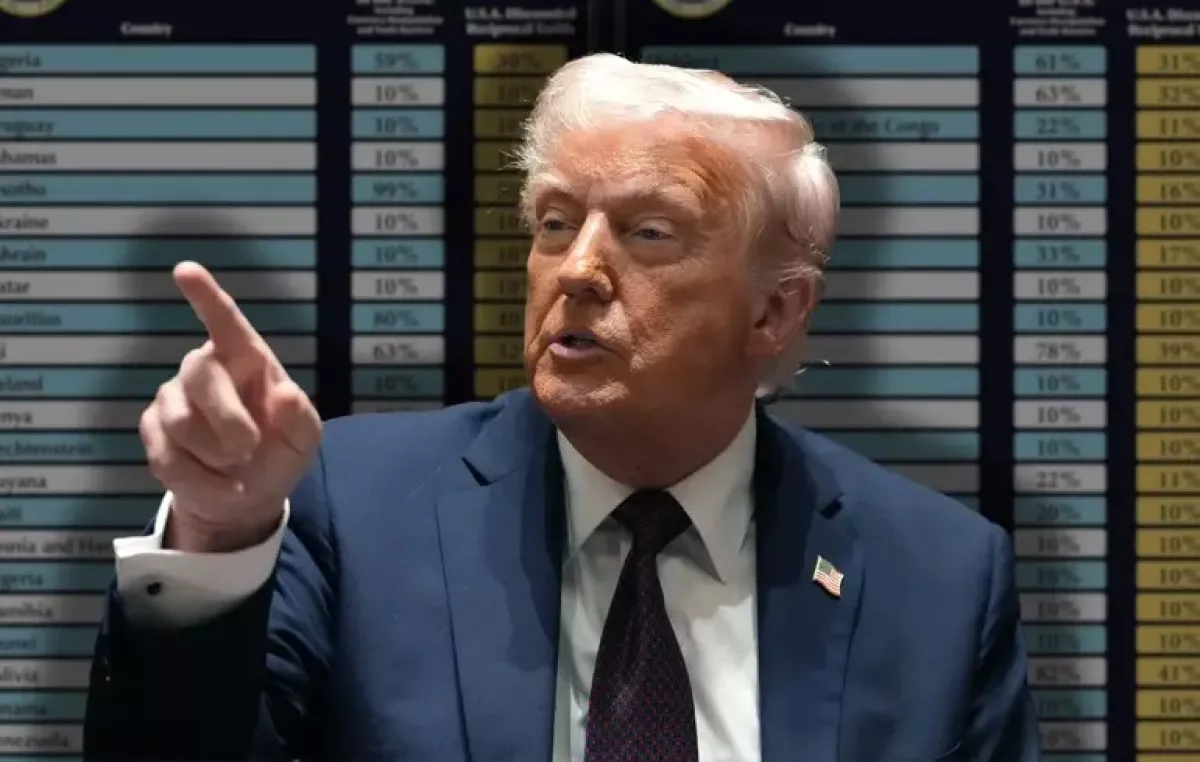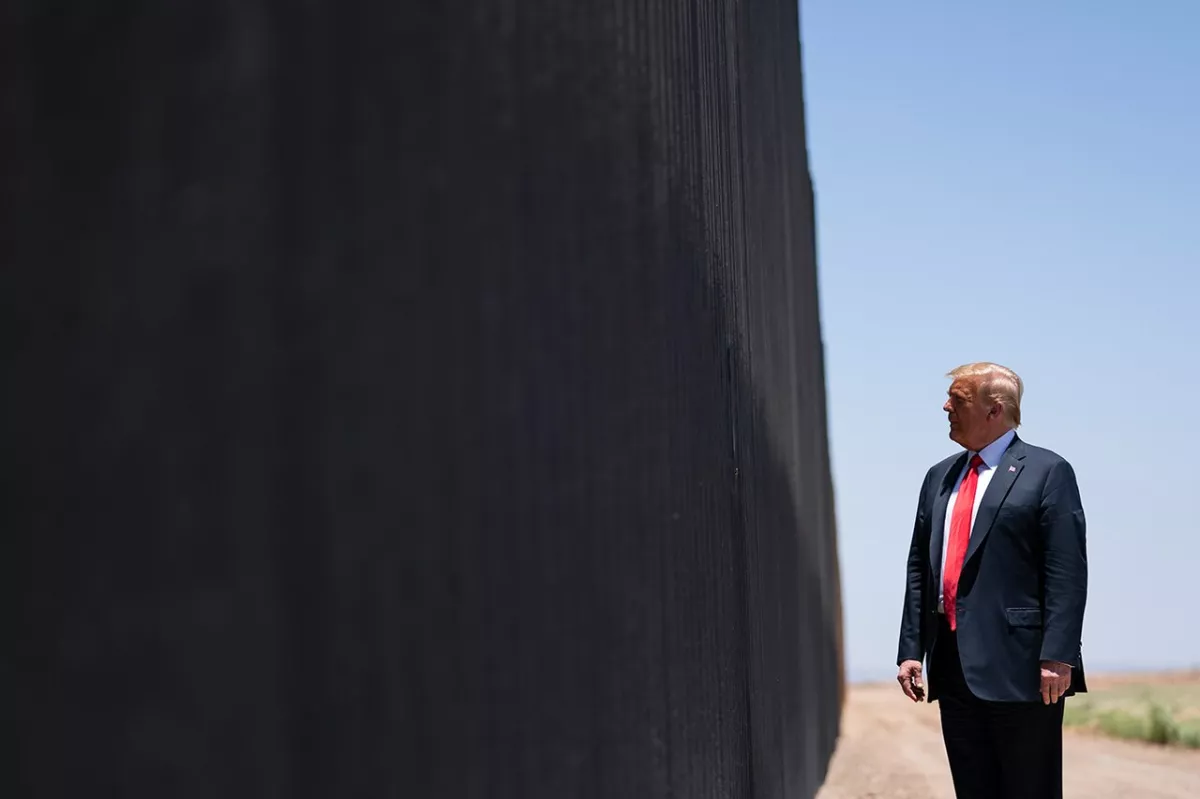US and Latin America: Tactical victories and strategic risks From the Panama Canal to trade wars
In just over two months of Donald Trump's presidency, U.S. policy towards Latin American countries has drastically changed. Previous administrations generally ignored this strategically important region, but the new U.S. president seems determined to revive the infamous "Monroe Doctrine," which suggests that only Americans will decide the fate of the New World. In the 19th century, this strategy was primarily directed against the British, French, and later the Germans. Today, the revived "Monroe Doctrine" will likely be aimed at China. Washington has long believed that many Latin American countries maintain too close ties with Beijing, Washington's main geopolitical rival.
In addition, Trump and his ministers view the southern neighbors as a security threat to the U.S. – a source of illegal immigration and drug trafficking. Based on this, the U.S. president seems to be reviving another traditional strategy in the region – the "Big Stick" policy, through which the will of the United States will be imposed on Latin American countries by force.

Donald Trump does not waste time. A number of his foreign and domestic policy decisions affect the interests of the southern neighbors. First and foremost, a 25% tariff on industrial goods was imposed on Mexico, which has long since turned into the "assembly plant" of the U.S. This measure is presented as a retaliatory action against Mexico's inability to curb the flow of illegal migrants and fentanyl across the American border. Following this, hundreds of thousands of illegal migrants from Latin America were deported back to their home countries or to "safe" third countries.
Eight transnational criminal organizations were designated as Foreign Terrorist Organizations (FTOs). Additionally, Donald Trump announced his intention to regain control over the Panama Canal and, based on national security concerns, demanded that the southern neighbors sever their business and political ties with China.
As noted by specialists from the International Institute for Strategic Studies (IISS), Trump’s assertive policy has brought some successes, but in the long term, a hardline stance may work against the goals Trump has outlined. The most evident examples of this can be seen in Trump's policy towards Panama and Mexico. The Panama Canal is a vital artery for global trade, playing a crucial role in the economic security and competitiveness of the U.S., and it holds critical military significance amid the intensifying competition among major powers in the region.
In Panama, Washington’s statements regarding the return of control over the Panama Canal by any means initially caused an uproar, but the government then took a series of steps aimed at appeasing Trump. The administration of President José Raúl Mulino declared that Panama would not resume its participation in China’s flagship infrastructure strategy, the Belt and Road Initiative. Panama also intensified cooperation with Washington on migration issues, expressing a desire to become a "bridge" for individuals deported from the U.S. while they await return to their countries of origin.
Equally important is the fact that the Hong Kong-based corporation CK Hutchison agreed to sell the Panamanian ports of Balboa and Cristobal, located at the Pacific and Atlantic ends of the Panama Canal Zone, to a consortium led by the American asset manager BlackRock. If the Panamanian government approves the deal, these strategically important ports will effectively come under U.S. control.

Strengthening the border with Mexico was important both for U.S. national security and for American public opinion, which was concerned about illegal immigration and the fentanyl crisis. Under pressure from Washington, the administration of Mexican President Claudia Sheinbaum adjusted its security strategy, abandoning the "hugs, not bullets" policy. Mexico began to focus more on combating organizations involved in the illegal drug trade and the shadow economy, which led to significant progress in intercepting fentanyl shipments.
In February, the Mexican government sent an additional 10,000 National Guard troops to strengthen border security against illegal immigration and the illegal drug trade, and also deported 29 known drug lords to the U.S. Among them was Rafael Caro Quintero, one of the FBI's ten most wanted fugitives. The number of border crossings by illegal migrants sharply decreased, reaching its lowest level in decades by February. In an effort to alleviate U.S. concerns about China’s growing economic presence in Mexico, Sheinbaum's administration also expressed its willingness to increase tariffs on Chinese cars and auto parts.
These examples highlight Trump's early successes in his attempts to restore U.S. hegemony in Latin America while also strengthening regional stability. However, long-term success is far less certain. To combat armed violence and the illegal drug trade in Mexico (and Latin America as a whole), more will be required than simply fighting drug cartels and the illegal fentanyl trade. A purely punitive strategy is doomed to fail if it is not part of a comprehensive approach that addresses the socio-economic causes of violence, creates opportunities within the legal economy, strengthens institutional resilience and governance standards in Mexico, and reduces demand for drugs and arms trafficking. Reducing the financial flows that support the shadow economy and empower organized crime is also a crucial condition for long-term progress.
Without such a comprehensive approach, Trump's policy will sooner or later lead to an escalation of violence, as criminal groups will seek revenge against the state and fight for control over new smuggling routes and the criminal economy, adapting their tactics to changing realities. Designating several criminal organizations as terrorists may ultimately prove more harmful than beneficial, as it will not limit their activities or strengthen the positions of their competitors who are not on the "narco-terrorist" list. It will also fuel Latin American nationalism and resentment towards the U.S., creating additional legal risks for companies operating in Mexico and across Latin America, with regard to compliance with regulatory requirements.

As for the strategy of containing China, without concrete measures to support economic growth and diversification in Latin America, as well as strengthening its democratic institutions, Beijing will remain the dominant economic power in the region. Moreover, trade tariffs and the deportation of migrants to their countries of origin, due to the economic damage caused by the loss of remittances, will harm the economies of Latin American countries. This will make Chinese trade and investments even more attractive.
Economists estimate that Mexico's losses from the imposition of a 25% general tariff will amount to about 1.15% of GDP over the next three to five years. The tense relations between the U.S. and China will also undermine any strategy to combat fentanyl, given the crucial role played by Chinese organized crime groups in supplying chemical components and laundering money for their Latin American counterparts. Moreover, limiting China's presence in the Panama Canal may prove to be a Pyrrhic victory, considering China's extensive involvement in key Latin American ports.
Ultimately, the current strategy of the Trump administration may yield tactical victories. However, in the long term, its consequences may include the weakening of U.S. influence in the region, potentially allowing other powers to fill the resulting vacuum.








